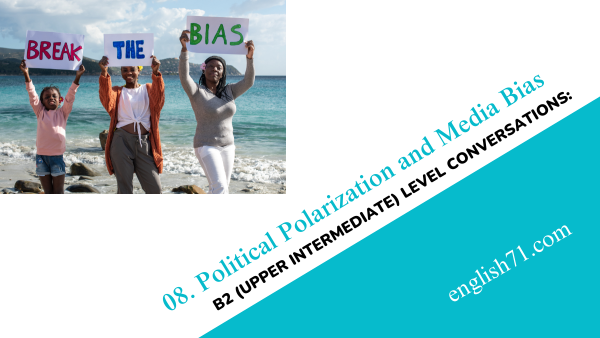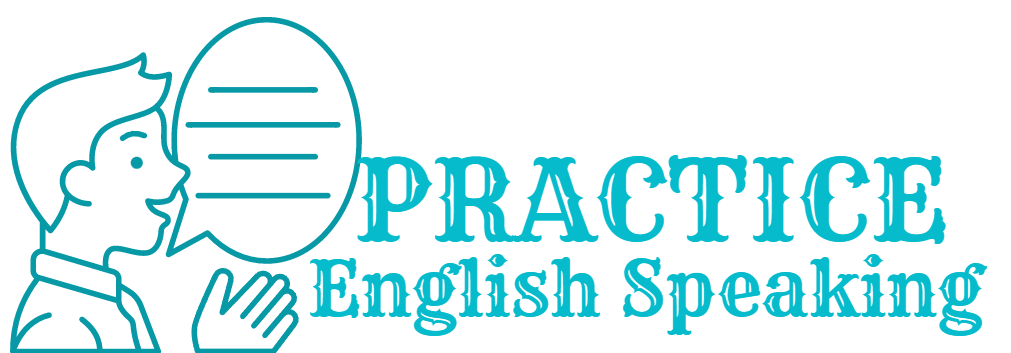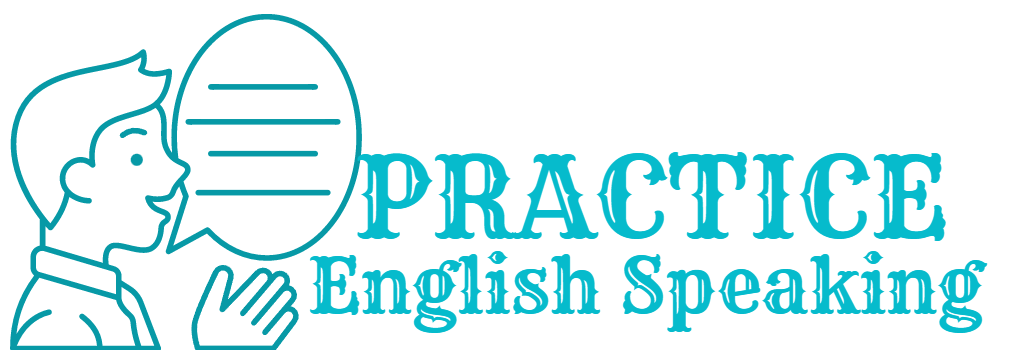B2 (Upper Intermediate) level Conversations: (8)Political Polarization and Media Bias

Marie: Hey Andrew! Have you noticed how political discussions have become increasingly polarized?
Andrew: Absolutely, Marie. It seems like people are getting more entrenched in their views. Do you think media plays a role in this?
Marie: Definitely. I’ve observed media bias in the way news is reported. Different outlets seem to have distinct narratives, making it challenging to get a balanced perspective.
Andrew: True. It’s like people are living in echo chambers, only exposed to information that aligns with their existing beliefs. How can we bridge these divides?
Marie: I think promoting media literacy is crucial. People need to be aware of bias and actively seek diverse sources to form well-rounded opinions.
Andrew: That’s a good point. Critical thinking skills are essential in navigating through the sea of information. Do you think social media intensifies polarization?
Marie: Definitely. Algorithms often show us content that reinforces our views, creating filter bubbles. It’s a challenge to break out of that and engage with differing opinions.
Andrew: It’s a double-edged sword. While social media connects people, it also contributes to the polarization problem. How do you think we can encourage open dialogue?
Marie: Encouraging respectful conversations, even with differing opinions, is crucial. It’s about understanding perspectives without necessarily agreeing.
Andrew: True, fostering empathy is key. Also, fact-checking before sharing information can curb the spread of misinformation. Have you encountered situations where political discussions turned heated?
Marie: Oh, definitely. I think it’s essential to establish ground rules for respectful discourse. But emotions can run high, especially on sensitive topics. How do you navigate such situations?
Andrew: Staying calm, actively listening, and avoiding personal attacks is crucial. It’s about finding common ground rather than focusing on differences. Do you think there’s hope for reducing polarization?
Marie: I believe so. It requires collective efforts – from individuals to media organizations. Education and promoting open-mindedness can gradually shift the dynamics.
Andrew: Agreed. It’s a complex issue, but small steps can make a difference. Well, Marie, it’s been enlightening discussing this with you.
Marie: Likewise, Andrew. Let’s hope for more constructive dialogues in the future.



Summary:
Marie and Andrew delve into the challenges of political polarization and media bias. They recognize the impact of echo chambers created by biased news reporting and social media algorithms. Emphasizing the importance of media literacy, they discuss the need for critical thinking skills to navigate diverse information sources. Acknowledging the role of social media in intensifying polarization, they highlight the significance of encouraging respectful dialogue and fact-checking. The conversation explores strategies for bridging divides, fostering empathy, and establishing ground rules for constructive discourse. While recognizing the complexities, Marie and Andrew express hope for positive change through collective efforts and education.

